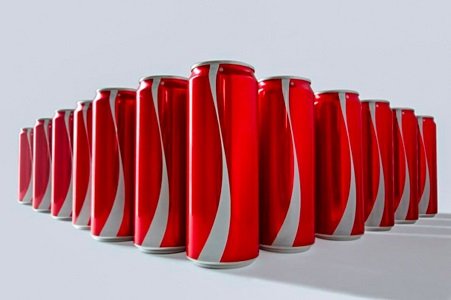(CNN) — Coca-Cola wants everyone to imagine a world without labels. And as an example, the beverage company is dropping its own.
Coke has introduced a new version of its iconic red-and-white can in Middle Eastern countries for Ramadan, the Muslim holiday that ends July 17. The new red cans feature Coke’s signature dynamic ribbon but not the words “Coca-Cola” and are intended to promote open-mindedness and tolerance.
The backs of the cans bear the message “Labels are for cans, not people.”
YouTube
Remove labels this Ramadan
Coke has introduced a new version of its iconic red-and-white can in Middle Eastern countries for Ramadan, the Muslim holiday that ends July 17. The new red cans feature Coke’s signature dynamic ribbon but not the words “Coca-Cola” and are intended to promote open-mindedness and tolerance.
An accompanying video underlines the idea behind the campaign. Prejudices can be formed in mere seconds, so the company brought together six men to discuss their lives in a dark room. As the group talked, they shared opinions about what the others looked like, only to have those preconceptions shattered — one was a cognitive psychologist with face tattoos, another a clean-cut heavy-metal rocker — when the lights came on.
This push is part of Coca-Cola’s larger “Let’s take an extra second” campaign.
Though it’s creative, what Coke is doing is nothing new to the marketing world.
The brand is one of many to couple marketing and social activism, though results have been mixed. Starbucks faced backlash this year when it asked baristas to discuss race relations with customers for its “Race Together” movement.
Companies such as Dove and Nike have capitalized on social advocacy. Dove’s “Real Beauty Sketches” went viral in 2013 by addressing issues of female self-esteem. A forensics artist drew two portraits of a woman, one from the woman’s own description of herself and the other from someone else’s, to show that women are more beautiful than they perceive.
Nike empowered people to “Find Your Greatness” with an ad featuring a young boy jogging to be healthy.
One of the most famous social-good ads was “Dumb Ways to Die,” an animated music video about all the preventable ways a person can put their life at risk. The campaign is linked to increasing safety on railways in Melbourne, Australia.
Even the 2015 Super Bowl, where ad space is generally reserved for slapstick humor, became a platform for advocacy with a slew of “dad-vertising” commercials that thanked fathers for their love and commitment.
Critics debate whether these are genuine acts of social good or mere marketing ploys that associate a brand with feel-good campaigns. Also debatable is whether a limited-time campaign can have enough impact to change perceptions in the long term. Regardless, the wide-reaching influence of huge brands can bring new attention to the situation.
The-CNN-Wire
™ & © 2015 Cable News Network, Inc., a Time Warner Company. All rights reserved.
